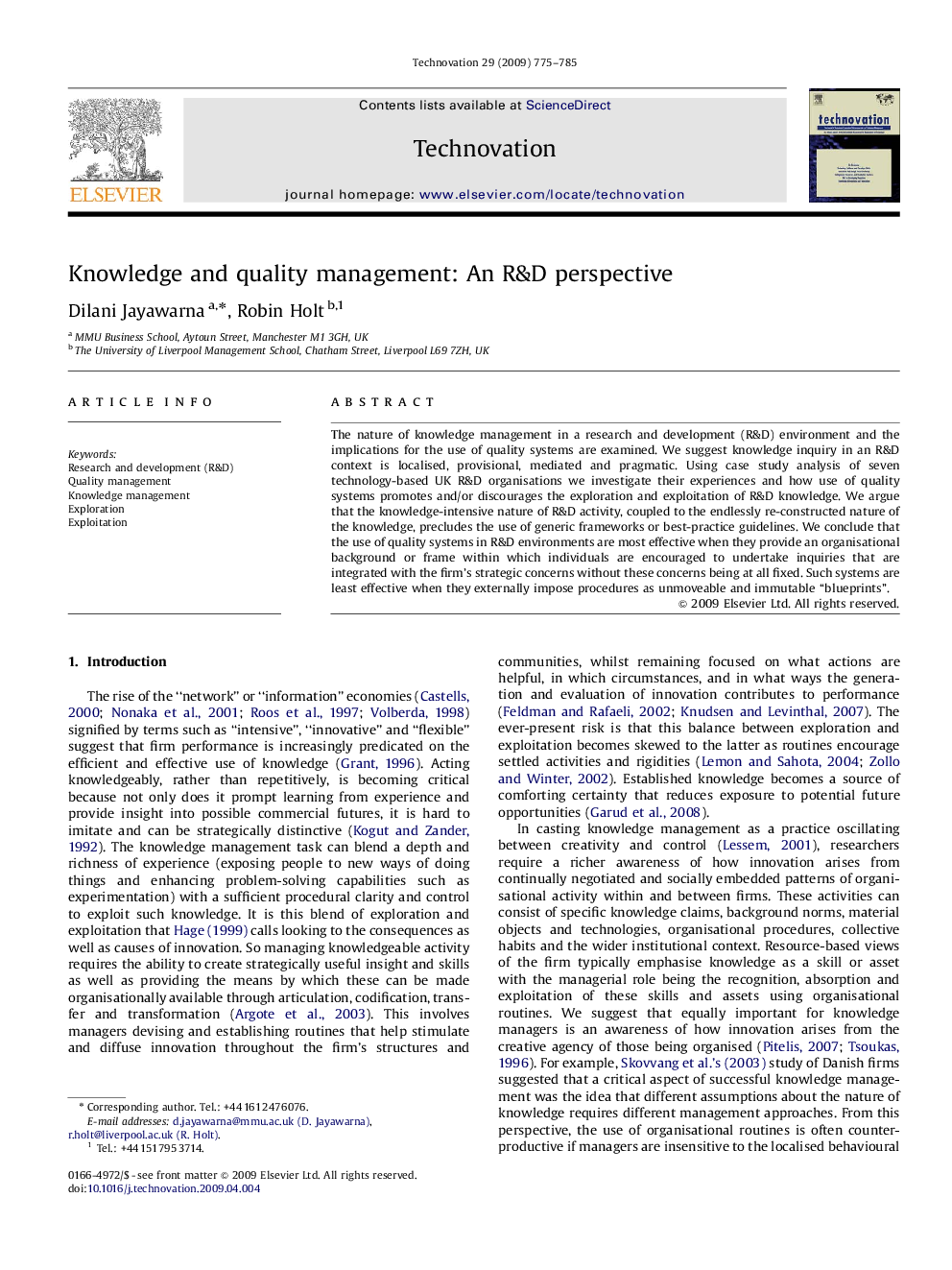| Article ID | Journal | Published Year | Pages | File Type |
|---|---|---|---|---|
| 1022348 | Technovation | 2009 | 11 Pages |
The nature of knowledge management in a research and development (R&D) environment and the implications for the use of quality systems are examined. We suggest knowledge inquiry in an R&D context is localised, provisional, mediated and pragmatic. Using case study analysis of seven technology-based UK R&D organisations we investigate their experiences and how use of quality systems promotes and/or discourages the exploration and exploitation of R&D knowledge. We argue that the knowledge-intensive nature of R&D activity, coupled to the endlessly re-constructed nature of the knowledge, precludes the use of generic frameworks or best-practice guidelines. We conclude that the use of quality systems in R&D environments are most effective when they provide an organisational background or frame within which individuals are encouraged to undertake inquiries that are integrated with the firm's strategic concerns without these concerns being at all fixed. Such systems are least effective when they externally impose procedures as unmoveable and immutable “blueprints”.
